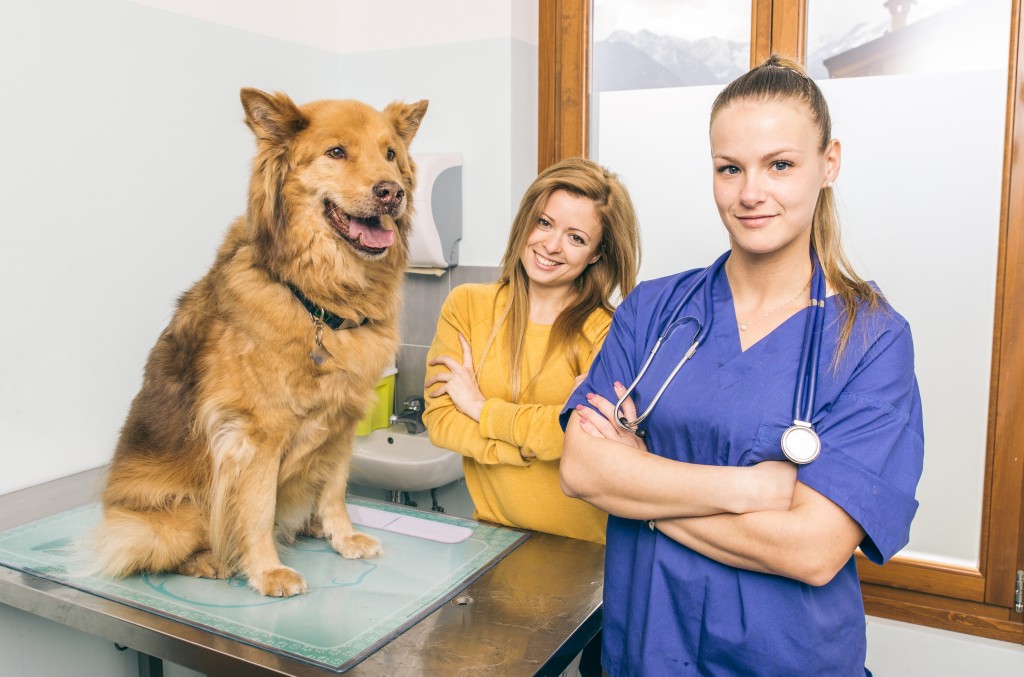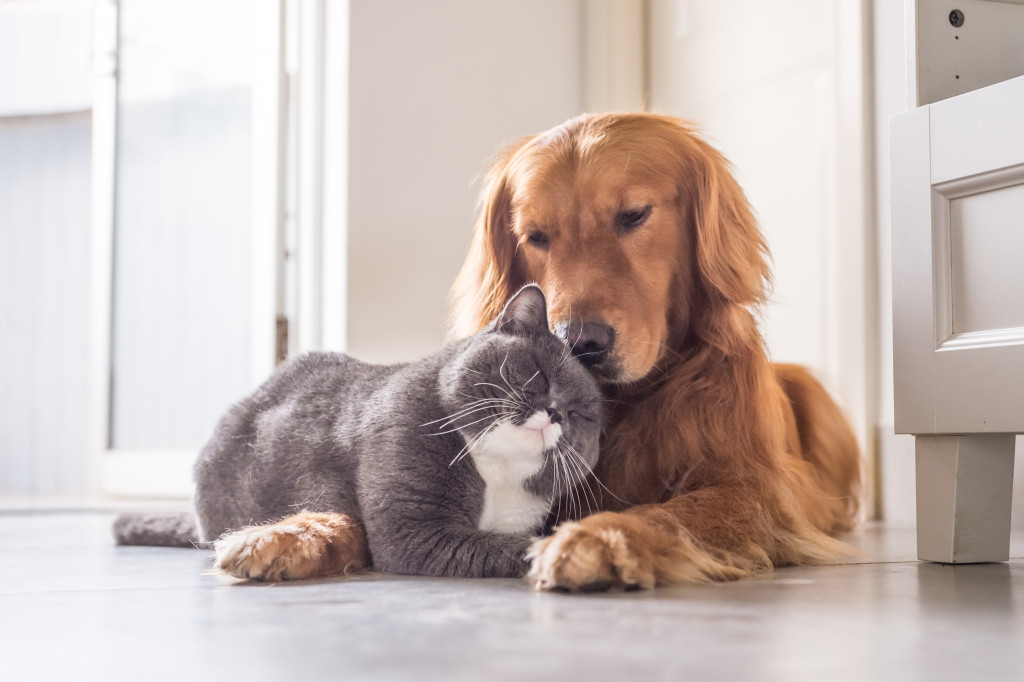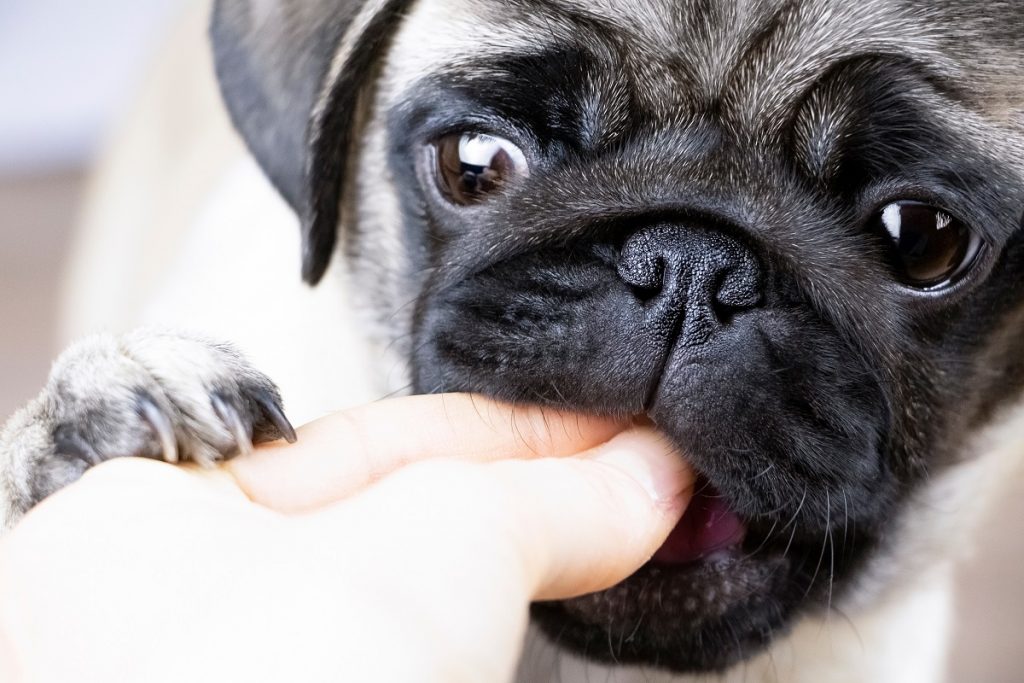Adopting or rescuing a dog from a shelter is a noble task — and a path that we should all choose. However, it’s also not an easy path, as dogs from a shelter can often pose some challenges, especially if they have gone through significant trauma. Just like human beings, our pets are sentient, making them vulnerable to the psychological effects of a traumatic experience.
Here are the signs and symptoms that your dog may have PTSD, and what steps you can take in order to help them heal and recover.
Signs and symptoms
- Pooping and peeing in the house despite being properly trained
- Whining, barking, and howling for no reason
- Destroying stuff in and around the house
- Fleeing situations when they’re scared
- Being aggressive when forced to interact or to get out of a hiding spot
- Freezing or showing avoidant behavior such as being still or hiding
- Hiding, shaking, or urinating/defecating when triggered
What you can do

1. Keep them safe and make them feel it.
The problem with our pets is that unlike people, they’re unable to talk about the traumatic experience that they went through. What we can do for them is to provide a safe space that’s completely opposite of whatever nightmare they’ve had to live through. Every dog has to go through an adjustment period since a new home means new sights, smells, sounds, and people, and it can overwhelm them.
Buy a collar that fits your dog properly, and make sure to place secure ID tags with your name and contact information. If your dog is the type to suddenly bolt away, use a long but lightweight leash so you have a chance of keeping up with them.
2. Set up an “emotional support” spot.
Give your dog a place of their own inside your house. Cover their crate with a fuzzy and warm blanket and fluffy pillows to keep them warm and cozy at night, and make sure it’s located in a spot in your home that doesn’t have high foot traffic. This place will give them an area to escape to whenever they’re feeling overwhelmed by their new home.
3. Give them some form of agency.
Every kind of abuse involves stripping the victim of their power. One way to combat this is by not forcing your dog to do anything they don’t want to do. Allow them some space to decompress—the last thing you need to do is to demonstrate an “alpha” behavior.
4. Use food and snacks to connect.
Your dog may be experiencing PTSD, but they’re still a dog, at the end of the day. And one way to a dog’s heart is always through yummy food and snacks. It can also be a powerful tool for connecting with them and influencing their behavior. Hand-feed your dog for the first few days they enter your house—it will help them associate you with good things.
5. Form trust by getting on their level.
One thing abused dogs will struggle with is trusting new people. Try to sit on the ground while talking to them or when petting them, to make yourself less intimidating. Allow them to smell your hand first before you pat them to show that you’re waiting for them to give you permission to trust them. Physically stay with them and show them a lot of love when they’re low-energy or in freeze mode. Trust is earned, even in our relationship with our pets.
6. Don’t lose hope and be patient.
Don’t be too quick to introduce your dog to new people; give your pet time to acclimate to their new surroundings. If you feel like nothing’s happening, don’t just give up and quit. It might take a while, but all your efforts will accumulate and your dog will come around eventually. Allow them to set the pace.
7. Have them trained.
When you notice a semblance of normalcy in your pet, don’t hesitate to have them trained through an excellent board and train program in your area. It will give your dog the opportunity to learn basic etiquette and obedience, as well as behavior modification, aggression management, and even competition and advanced obedience.
8. Consult with your vet
Most importantly, don’t hesitate to consult with your dog’s veterinarian. Your vet is the most excellent resource you can have as you navigate this new experience, and they can be your partner in helping your pet recover. They can also give you a wealth of information about how you can show up for your furry friend. Ask for help from professionals so you can give your dog a long and happy life that’s free from trauma, anxiety, and worry.
Raising a dog is a huge responsibility. Make sure you are ready to handle all the things associated with becoming a pet owner.




